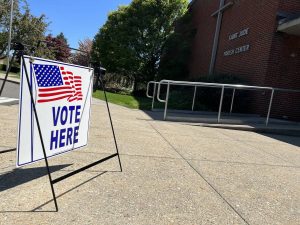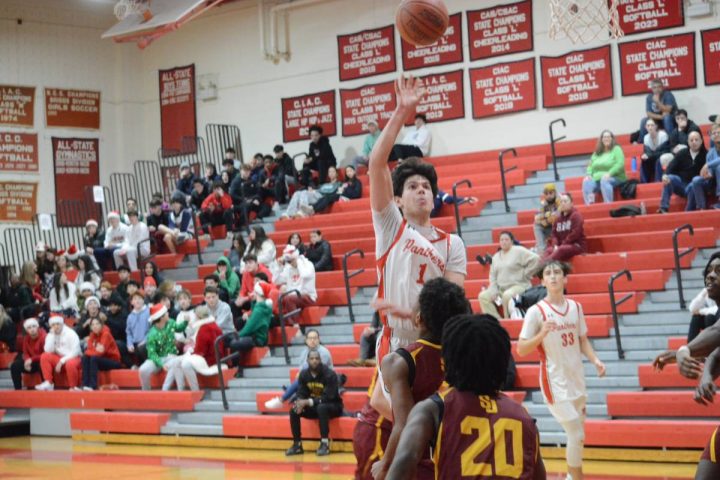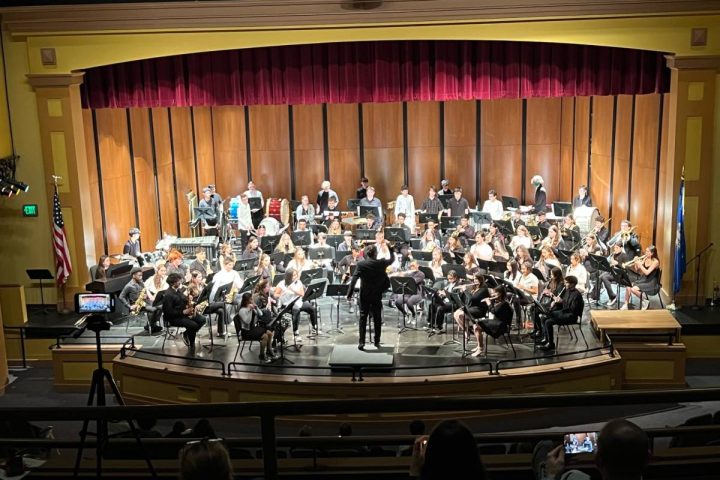MONROE, CT — During a referendum marked by low voter turnout, Monroe voters passed a $104.1 million town budget for fiscal year 2024-25 by a vote of 704 to 579 Tuesday, according to unofficial results from the Registrars of Voters Office.
A total of 1,283 people participated, which is 9.79 percent of the town’s eligible voters. This compares to a turnout of 1,652 voters (12.88 percent) last spring.
“I’m very happy that the citizens of this town got behind the budget,” First Selectman Terry Rooney said. “Although I would have liked to see more people come out to vote, I totally understand. Today was a beautiful day and people were spending time with their families.”
Tuesday was the first time the referendum was held in the gymnasium of St. Jude School, rather than at the town’s four polling places.
 “I’m ecstatic that it passed,” said Superintendent of Schools Joseph Kobza. “This budget addresses a lot of important needs we have as a district and I would have hated to have to go back to the drawing board.”
“I’m ecstatic that it passed,” said Superintendent of Schools Joseph Kobza. “This budget addresses a lot of important needs we have as a district and I would have hated to have to go back to the drawing board.”
“I’m very pleased. That’s great news,” Board of Education Chairman David Ferris said upon learning the budget passed. “Thank you to all the people who came out and supported us.”
This budget year the school system lost grant funding that had to be made up and the district and the town faced significant health insurance increases.
Rooney said this was his ninth budget process, eight as a town councilman and the first as first selectman.
“This was one of the most difficult ones. It was complicated,” he said. “I’m very happy we were able to produce a budget that people supported. The challenges in this budget weren’t seen in the previous budget cycles that I had experienced.”
The first selectman expressed his gratitude to everyone involved, including members of the Board of Education, Board of Finance and Town Council, finance and deputy finance directors, the superintendent and town department heads.
“Now I can move on to do some more work I really want to do,” Rooney said after spending six months working on the budget.
He said some nearby towns had budgets that did not pass, leading to layoffs. “We were able to get it done without doing that,” Rooney said, “and I’m proud of that in these economic times of high inflation.”
The new town budget carries a 1.91 percent increase in the tax rate, though individual tax bills will depend upon one’s property assessment.
Individual tax bills can be calculated by multiplying one’s assessed property value by the mill rate, projected to be 38.27 mills, and then dividing by 1,000. The current mill rate is 37.55.
The Board of Finance has 10 days to officially set the new mill rate.
The new town budget includes $71,464,259 for education, which is $3,780,835 or 5.59 more than the current $67,683,424 budget.
It also includes $31,748,849 for municipal services, which is $499,161 or 1.6 percent more than current spending, as well as a $400,000 Board of Finance contingency and $486,586 of “other appropriations.”
All respectful comments with the commenter’s first and last name are welcome.







low turn out because no one knew about it no signs anywhere